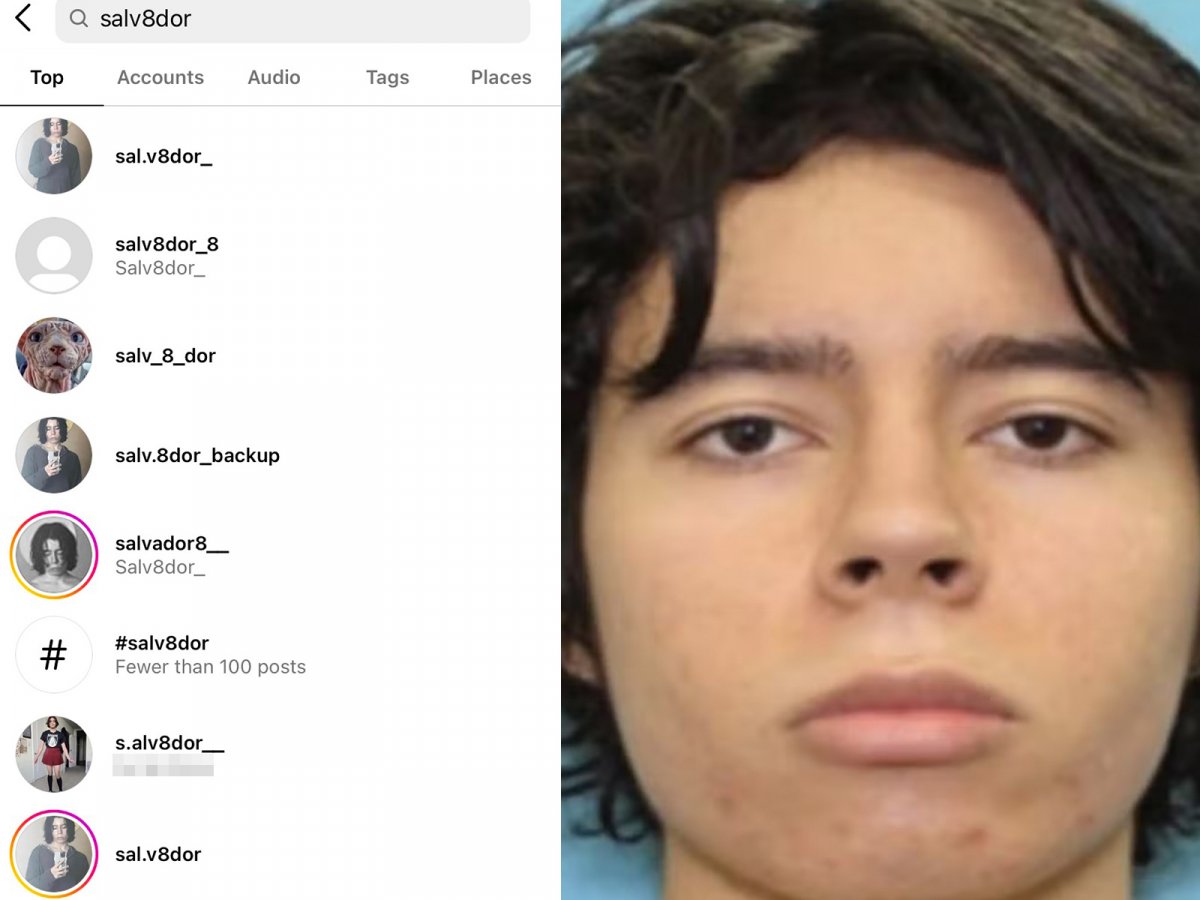Within hours of Salvador Ramos opening fire with an AR-15 semiautomatic rifle at Robb Elementary School in Uvalde, Texas, on Tuesday, killing 19 children and two adults, a clutch of copycat Instagram accounts were created, using variations of the 18-year-old shooter's handle and his face as the profile picture.
Newsweek counted 10-15 of the fake profiles, although some now appear to have been taken down.
Why would people make these accounts in the aftermath of such a tragedy? It is sadly a common occurrence, and happens after many high-profile shootings.
The option of being anonymous on the internet can bring out the worst in people. There's a measurable effect on civility when your name is no longer associated with your comments or actions. You can say anything online, be anyone. You can tell your darkest secrets and have people agree with you, without anyone knowing who you really are.

Back in 1971, the infamous Stanford prison experiment—where ordinary people told to act as prison guards mistreated others acting as prisoners—showed what usually polite people could be led to do under the guise of anonymity.
Fast forward 50 years, we see the rise of incel culture, trolls, doxxing and more damaging behaviors that can be done from behind a screen without anyone knowing it's you.
"Some fake accounts are made to mimic these killers to spread fear and anxiety," therapist Frank Thewes, of Path Forward Therapy, told Newsweek. "Other copycat accounts are made by individuals who identify with the unwellness, alienation and mental pain of the murderer."
The creators of these tribute accounts may be seeing the murderer as an avatar for their own feelings of alienation and mental health issues, and so creating the account is a way of paying their respect to the atrocious deed.
Eric Ridenour, a researcher at Launch Medical, a California-based men's health company, studied this phenomenon in 2011 when Jared Loughner shot U.S. Representative Gabby Giffords, and people began sharing alleged profiles from Facebook of the gunman.
"In this case, people were creating profiles to back their political biases," Ridenour told Newsweek. "I saw fake profiles come up, some posting right-wing views, and others supporting left-wing views. In my opinion, this was the beginning of a bigger problem we see now where people commonly will fabricate evidence to support their political arguments."
The same thing happened in the aftermath of the shooting at Oxford High School, Michigan, in late 2021. Ethan Crumbley, 15, allegedly shot dead four students and injured seven more. In the aftermath, his social media accounts were suspended, but several accounts pretending to be him cropped up. "Unfortunately, poor taste is not against the law," Lt. Mike Shaw, from the Michigan State Police, said at the time.
After the 2018 school shooting at Marjory Stoneman Douglas High School in Parkland, Florida, fake accounts pretending to be alleged shooter Nikolas Cruz, 19, quickly spread on Instagram. At the time, Jennifer Johnston, psychology professor at Western New Mexico University, told Quartz that the misinformation these accounts create can lead to more violence. "They are trying to push a particular narrative that might feed into someone's political agenda or conspiracy theories," she said.
Ridenour thinks another motivation for these fake accounts is that people want their posts or profile to be shared in an attempt to go viral: "To me, it shows the deep need of people who crave attention and seek validation through social media."
Instagram, which is owned by Meta, formerly Facebook, has taken a series of steps in the wake of the Uvalde shooting, including removing the shooter's account and acting to remove any accounts that are associated with the shooter, or that praise or support the shooting or the suspect.
The company, which is working with law enforcement on the issue, is also removing copycat accounts and implementing measures to prevent users from creating additional accounts.
Newsweek has contacted Meta for comment.
Uncommon Knowledge
Newsweek is committed to challenging conventional wisdom and finding connections in the search for common ground.
Newsweek is committed to challenging conventional wisdom and finding connections in the search for common ground.
About the writer
Jess Thomson is a Newsweek Science Reporter based in London UK. Her focus is reporting on science, technology and healthcare. ... Read more
To read how Newsweek uses AI as a newsroom tool, Click here.








